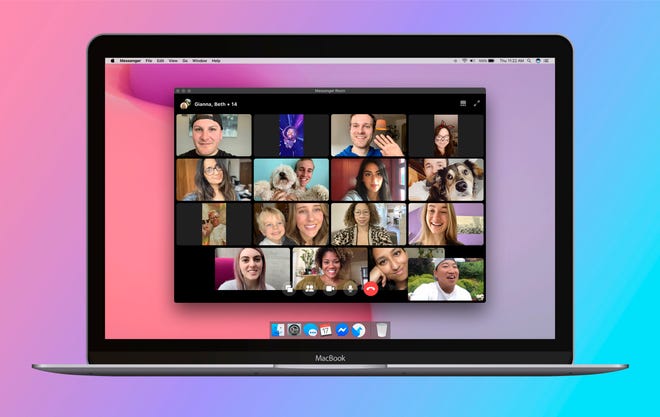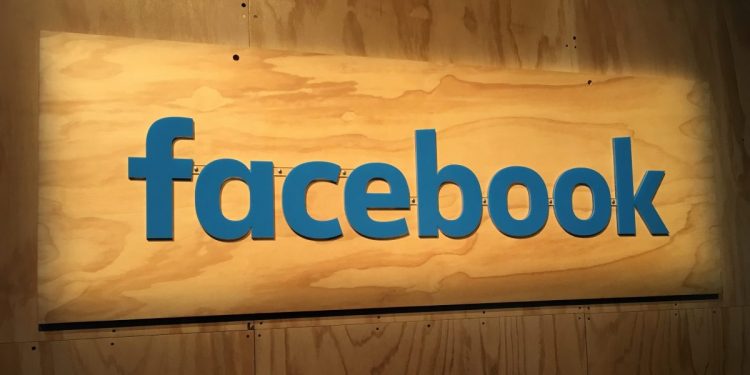As a part of its effort to address the social paradigms emerging from the ongoing coronavirus pandemic, Facebook today announced new features heading to Messenger, Portal, Facebook Live, Instagram, and Facebook Dating that aim to make it easier to connect with close friends, followers, and significant others.
Perhaps the most notable is Messenger Rooms, which creates joinable group video calls on Facebook and Facebook Messenger. Hosts can invite anyone to join — even if they don’t have a Facebook account — and rooms will soon hold up to 50 users without a time limit.
The account-free nature of Messenger Rooms would appear to be a direct response to Zoom, which has exploded to 300 million daily active users during the pandemic. Other video chat platforms like Skype have followed in Zoom’s footsteps, dropping account sign-up requirements and expanding the number of supported users.
Starting today in some countries and in the rest of the world in the coming weeks (including the U.S.), users can start and share rooms via Facebook through the News Feed, Groups, and Events sections. On Facebook, people will see rooms created by friends or communities that are open to them, and when they’re invited to a room, they’ll be able to join from their phone or computer without having to download anything.
June 5th: The AI Audit in NYC
Join us next week in NYC to engage with top executive leaders, delving into strategies for auditing AI models to ensure fairness, optimal performance, and ethical compliance across diverse organizations. Secure your attendance for this exclusive invite-only event.

In the future, Messenger Rooms will be integrated with Instagram Direct, WhatsApp, and Portal, according to Facebook VP of Messenger Stan Chudnovsky. He noted that work on Messenger Rooms was underway before the coronavirus, but that Facebook fast-tracked it as the volume of calls and group video calls on its platform skyrocketed.
Interestingly, Messenger Rooms launched in Canada and Australia four years ago — albeit as part of a pilot to let users create topic-centered spaces. Similar to Messenger’s Group chat function, the rooms could be theme-, event-, or topic-based and private or public, and they were capped at 250 participants. But they didn’t support video streaming.
“Our community is turning to Messenger and WhatsApp more than ever to stay connected,” said Chudnovsky in a statement. “Between Messenger and WhatsApp, more than 700 million accounts participate in voice and video calls every day, and the number of calls has more than doubled in many countries since the pandemic began. In some cases, the number of group video calls has gone up by more than 10 times.”
Facebook notes that Messenger Rooms doesn’t record or listen to calls and that the person who creates the room controls who is able to join, who sees the room, and whether the room is locked or unlocked to new guests. The room creator must be present in order for the call to begin and can remove guests at any time, and room names and rooms themselves can be reported if they violate Facebook’s Community Standards.
Alongside Messenger Rooms, Facebook is introducing new AI-powered effects in Messenger that complement the app’s existing augmented reality filters. Among them are 360-degree backgrounds like luxe apartments and beaches, 14 camera filters with ambient lighting that brightens spaces and faces, and birthday- and camping-themed stickers and backdrops.
Facebook Live, Instagram, Portal, and Facebook Dating
Elsewhere on Facebook, Live With, a Facebook Live feature that was deprecated last November, has returned — it lets users add another person into a livestream no matter where they are in the world. Meanwhile, Events users will soon be able to mark events as online-only and integrate broadcast events from Live to guests. As for Facebook Pages, they’ll gain the ability to charge for access to Live video streams, from performances and meetings to professional conferences.
In other news, Facebook users can now add a donate button to Live videos wherever nonprofit fundraisers are available and access streaming video even on spotty connections — there are now options to listen only to the audio of a livestream or to dial in via a telephone number. And Facebook says it is expanding Stars, a feature that lets viewers monetarily support a video streamer, to more Pages in more countries.
On Instagram as of this week, users can watch and comment on livestreams from desktop or save videos to Instagram TV (IGTV), so that they stick around longer than the 24-hour limit in Instagram Stories and are easier to find. Meanwhile, on Portal, users will soon be able to go live to Facebook Pages and groups. (That latter feature’s launch neatly coincides with Facebook’s donation of thousands of Portal devices to U.S. veterans and health systems in the U.K.)
Lastly, Facebook is adding an option in the coming months to invite people to a “virtual date” — a one-on-one video chat — via Messenger.
The feature rollouts come days after WhatsApp expanded video call limits and following the unveiling of Tournaments, a new component of the Facebook Gaming app that lets users organize or join a video gaming tournament. Brackets, leaderboards, and everything else happens virtually — people can host fan tournaments while streaming the action live and take advantage of fundraising tools to rally support for charitable causes.
Facebook’s response to the coronavirus extends beyond event facilitation. The company recently announced it would retroactively send alerts to any users who had interacted with pandemic-related content subsequently labeled misleading, and it launched a WhatsApp information hub and the Messenger Coronavirus Community Hub, which provides tips and resources to help users stay in touch with friends and communities while preventing the spread of misinformation. Facebook also began testing stricter limits for how many chats Messenger users can forward a message to at one time; banned ads for hand sanitizer, medical masks, and COVID-19 test kits; and removed its “pseudoscience” ad targeting category.

